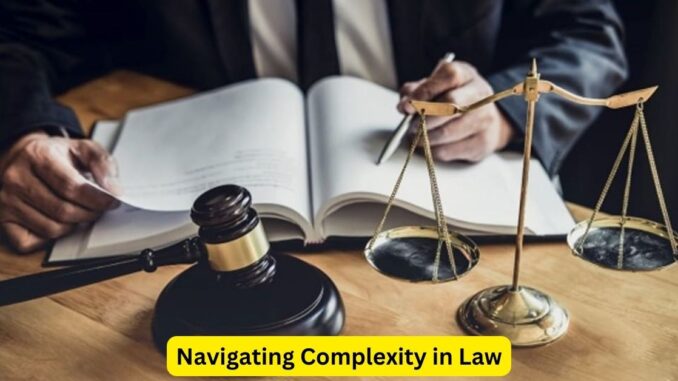
The legal system is often likened to a maze, with its intricate pathways, complex rules, and multifaceted issues. For individuals and organizations alike, navigating this legal maze requires not only a deep understanding of the law but also strategic thinking and adept problem-solving skills. The complexity of the law is both a challenge and a necessity, reflecting the nuanced nature of human society and the diverse array of situations that laws must address.
At its core, the complexity of the legal system arises from its structure and the interplay between various sources of law. Constitutions, statutes, regulations, case law, and administrative rules all form the legal framework within which society operates. Each of these sources of law serves a distinct purpose and applies in different contexts. Constitutions set the fundamental principles and structures of government, statutes are enacted by legislatures to address specific issues, regulations are detailed directives issued by administrative agencies, and case law emerges from judicial decisions interpreting these laws. Understanding how these components interact is crucial for effective legal navigation.
One of the significant challenges in the legal maze is the constant evolution of law. Societal changes, technological advancements, and new policy priorities continually shape and reshape legal norms. Lawyers and legal professionals must stay abreast of these developments to provide accurate and relevant advice. This dynamic nature of law requires continuous learning and adaptation. Legal professionals often specialize in specific areas of law to manage this complexity, becoming experts in fields such as corporate law, environmental law, intellectual property, or human rights.
Navigating the legal maze also involves understanding procedural rules that govern how laws are applied and enforced. Legal processes, including litigation, arbitration, mediation, and negotiation, each have their own sets of rules and procedures. Effective navigation requires knowledge of these processes and the ability to choose the most appropriate one for a given situation. For instance, while litigation may be necessary for resolving certain disputes, mediation might be a more effective and less adversarial approach in others.
Moreover, the legal system’s complexity is often compounded by the interplay of different jurisdictions. In federal systems like that of the United States, individuals and organizations must navigate both federal and state laws, which can sometimes conflict or overlap. International businesses face an even more complex legal landscape, having to comply with the laws of multiple countries and international regulations.
Legal professionals also play a crucial role in guiding clients through the maze by translating complex legal language into understandable terms and providing strategic advice. They analyze legal issues, foresee potential legal challenges, and develop strategies to mitigate risks. This role requires not only legal expertise but also strong analytical and communication skills.
For individuals, understanding their legal rights and obligations is fundamental. Resources such as legal aid clinics, online legal databases, and consultations with attorneys can help demystify the law and provide guidance. Legal literacy empowers individuals to make informed decisions, protect their rights, and navigate legal challenges more effectively.
In conclusion, the legal maze reflects the complexity and diversity of modern society. Navigating this maze requires a deep understanding of various sources of law, procedural rules, and jurisdictional intricacies. Legal professionals, through their expertise and guidance, play an essential role in helping individuals and organizations find their way through this intricate landscape. By mastering the art of navigation within the legal maze, one can effectively address legal challenges, protect their interests, and uphold the rule of law.

Leave a Reply